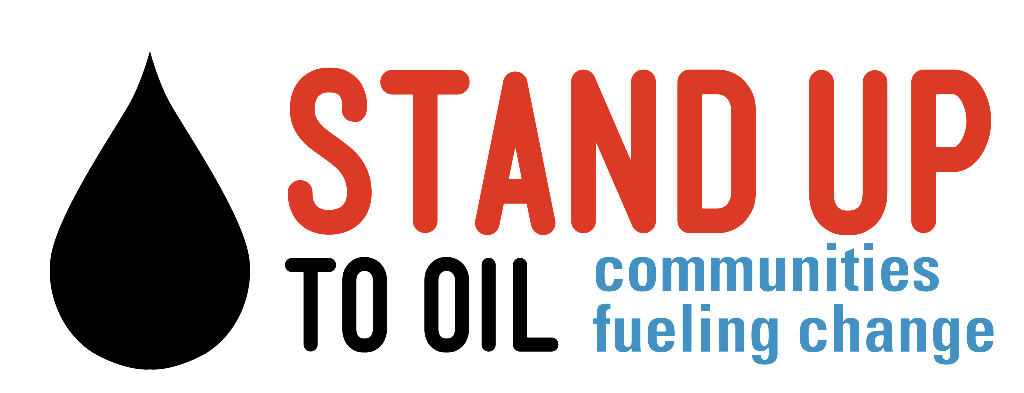Today marks the close of comments on the draft environmental impact statement for the proposed Tesoro-Savage oil terminal in Vancouver, WA. The Stand Up To Oil campaign delivered a record-breaking 276,296 comments to Washington’s Energy Facility Site Evaluation Council (EFSEC) opposing the project. This outpouring of opposition follows turn out of almost 2,000 people to three crowded hearings (two in Vancouver, one in Spokane) in the first weeks of 2016.
“At every turn we were impressed by the number of people who showed up in opposition to this oil terminal – and the depth and breadth of their concerns,” said Brett VandenHeuvel, Executive Director of Columbia Riverkeeper. “People are concerned about their businesses, their families’ health, and the risk to their communities.”
EFSEC will take public comments into consideration and make a recommendation to Governor Inslee who has the final say on whether this project moves forward.
If built, the Tesoro-Savage proposal would ship almost half as much crude oil as the now defunct Keystone XL pipeline, bringing four additional oil trains a day through communities along the rail line in Montana and Idaho, through downtown Spokane, and along the Columbia Gorge, where it will be loaded onto barges on the Columbia River. If built, the terminal would scuttle plans for a re-development of Vancouver’s waterfront.
“As someone who recently started a new business in Vancouver, I find it baffling that this project is being considered just as the global oil market is bottoming out. When you think about the negative impacts of Tesoro’s proposal on local businesses, the jobs we create, and our local economy, you realize that this project is terrible for Vancouver. And considering the risks when it comes to the terminal even making a profit, this project just doesn’t pencil out,” said Bryan Shull, owner of Trap Door Brewing and member of Vancouver 101, a group of 101 Vancouver businesses that oppose the project.
The Draft Environmental Impact Statement (DEIS) predicts an oil train derailment on average every other year, but critics say the study is downplaying the risks. Speakers at each hearing raised concerns about impacts from derailments and oil spills, as well as the implications of investing in a terminal that would increase climate pollution, rather than accelerating the transition to clean energy. Doctors, nurses, and other health professionals pointed to the health risks of diesel fumes from oil trains and toxic emissions from the terminal. The Washington State Medical Association recently passed a resolution at its annual meeting to address concerns recognized broadly within the medical community.
The Tesoro Savage proposal is opposed by the Vancouver City Council, Vancouver Firefighters Union IAFF Local 452, Spokane Firefighters Union, ILWU Local 4, Columbia Waterfront LLC, the City of Portland, Multnomah County Board of Commissioners, the Columbia River Inter-tribal Fish Commission, the Spokane Tribe, the sportfishing community, the environmental community, and people from all walks of life across the Northwest.
In addition to the Tesoro-Savage proposal, one other terminal, NuStar is proposed in Vancouver. Two of three originally-proposed terminals remain on the table in Grays Harbor, as well as a proposal to increase the oil-by-rail capacity of the Shell Oil Refinery in Anacortes. The U.S. Congress’s recent vote to lift the crude oil export ban adds another layer of urgency to the defeat of these proposals.
Washington state faces a proliferation of proposals for coal and oil terminals, as well as an expansion of oil by rail to existing refineries. If these proposals move forward, the region’s rail system face extreme strain and a significant increase in the amount of oil tanker traffic through Washington waters is expected.
